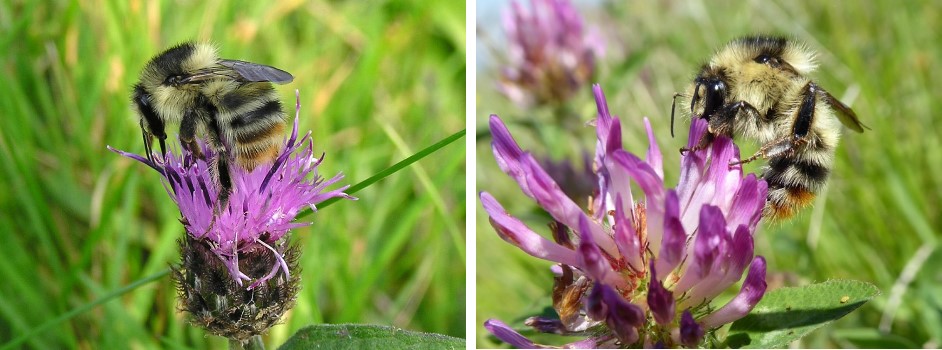Stage 3 Environmental Social Sciences student Abbie Cushion attended the guest DICE lecture this year, where she explores her experience in the event.
On the 9th of March, the School of Anthropology and Conservation welcomed insect ecologist Professor David Goulson from the University of Sussex. His lecture was incredibly inspiring, deconstructing the euphemisms of ‘pests’ and ‘weeds’ to help us appreciate the inherent value of nature’s least-appreciated beings.
“Don’t all insects deserve to live, regardless of what they do for us?”
As an Environmental Social Sciences student, my knowledge of insect conservation prior to this lecture was a little scarce. Of course, I had a very base-level understanding of their importance within the ecosystem; responsible for pollination; spreading seeds; biological control; aesthetic purposes?! Basically, a very big deal! However, this is pretty much where my understanding ends. What better way to expand my knowledge than to attend this year’s DICE lecture?
Background
Dave Goulson has many accolades within ecology, being named 8th most influential conservationist in BBC Wildlife Magazine in 2015; being the founder of the Bumblebee Conservation Trust; Trustee of Pesticide Action Network; publisher of multiple books such as Silent Earth; lecturer at the University of Sussex; and of course a collector of caterpillars as a child. He expanded on the importance of this childhood ‘obsession’ upon his lifestyle, recognising that being able to appreciate insects as a kid made him passionate about their conservation in his adult years.
Professor Goulson’s lecture expanded upon the importance (and beauty!) of insects within our ecosystem, and highlighted that despite this, many species are rapidly dwindling with the potential to have a cataclysmic impact upon agriculture, and subsequently us! Within this, he explored the potential importance of initiatives such as regenerative farming.
Here’s what you missed from the lecture:
How to Avert the Insect Apocalypse
Rewilding and similar initiatives may be all the rage in contemporary conservation attempts, but this is for a good reason. Sustainable agricultural alternatives such as regenerative farming restore soil integrity, enhancing biodiversity and climate change resilience, with the potential of a higher yield. These attempts require us to manipulate nature less, but will allow it to recover. He subsequently explores upon rewilding in greater deal, highlighting the huge impact it could have from us effectively sitting back and putting lawnmowers away.
Something I’ve proactively attempted at home is to get my family to rewild their gardens. Many of us in countryside areas are gifted with luscious green areas with huge potential to attract wildlife and provide much-needed assets for insects, and Professor Goulson urges us to continue with this garden rewilding. By directly affecting species populations and biodiversity within our gardens, it also allows us to spiritually reconnect with nature a little closer to home – increasing our well-being. Within this, Professor Goulson issues a few easy recommendations for rewilding your garden:
- Choosing native plants such as Marjoram, Knapweed. These are better for pollination than other non-natives.
- ‘Weeds’ aren’t bad! They are great for pollinators.
- Ditch pesticides! They do A LOT more harm than good.
- Let your lawn grow out! No, I’m not being crude. Letting lawns grow out promotes insect life and boosts biodiversity
These conservation attempts, he attests, need to be implemented in our homes and communities – our cities, towns, and villages have the power to boost biodiversity! As well as this, embracing local knowledge is something that is essential moving forward, encouraging ‘organic’ methods to refute industrialised agriculture (monocultures especially) which is particularly damaging to local biodiversity. By restoring the ‘wild’, we can give our gardens and cities a helping hand in enhancing insect populations and slowly increasing the health of our planet.

“We need to rewild with nature, and reconnect ourselves… build a respect and love for nature…” Professor Goulson states “It is everything to us”
He even gave us a glimpse of hand-pollination attempts in South China, highlighting that this could be the future of agriculture without effective and widespread change. I think the night really highlights the need for us to be more cautious about WHAT we use in our garden, and that perhaps we need to ditch our lawnmowers and somewhat let nature take over! Certainly, this lecture has increased my love for gardening!
Professor Goulson’s books can be found in the Blackwells on campus, he has published the following; Bumblebees; Their Behaviour, Ecology and Conservation; A Sting in the Tale; A Buzz in the Meadow; Bee Quest; The Garden Jungle; Gardening for Bumblebees; and Silent Earth.

